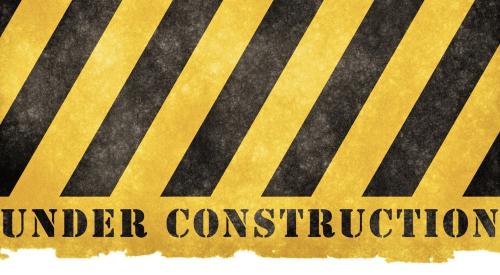Is anyone else hearing echoes from 2008? The slightest whisper of that year is enough to send shivers down the spine of anyone who ever worked in home sales. Are we really reliving it again now?
The reality is the housing market ebbs and flows. We revel in historical peaks and abruptly swing to daunting lows. Home building may not be the most predictable or stable industry, but it does boast one reliable truth: Home sales success consistently comes to sales leaders who stay agile and innovate, no matter the market trend.
Throw away your preconceived ideas of the current housing market. Whether you have faith in it or not doesn’t really matter. What matters is how well you understand the buyers—the current homebuyers, the buyers-in-waiting, the homebuyers 10 years from now. Do you truly know who they are? If so, have you fundamentally reformed your sales approach to account for the seismic shift in buyer behavior that has transpired for the last few years?
RELATED
- Why You Need a Backup Plan for a Housing Market in Flux
- Buy It Now: Self-Service and the Homebuying Experience of the Future
- How We Can Reinvent Home Building to Meet Current Challenges and Future Needs
Three Truths for Home Sales Success
Most sales leaders have been in chaos control since 2020. It’s time to stop feeding that mindset and start shifting gears. Use these three insights to help you be unshakable, resilient, and successful in home sales for the foreseeable future.
Truth 1: You’re on the precipice of a massive new buyer market
Too many people are thinking the different generations are all playing musical chairs with one another, as if one moment Millennials are in, and the next they’re out thanks to Boomers. The reality is much more fluid and organic, albeit somewhat delayed. That delay is the key.
Millennials account for the largest new-homebuyer segment, with the oldest among them turning 40. They are important to nurture, but they’re also your lowest lying fruit. Expect Millennials to be the bulk of your customers, but don’t have tunnel vision either.
Throw away your preconceived ideas of the current housing market. … What matters is how well you understand the buyers—the current homebuyers, the buyers-in-waiting, the buyers 10 years from now.
A staggering 48% of people ages 18-29 still live at home—and not because they want to. Seeping into Gen-Z territory, forward-thinking sales teams will start building relationships with this demographic early. This cohort of young adults is perched to leave the nest as soon as they have the necessary resources, which could happen sooner than we all expect.
Moreover, Baby Boomers will transfer several trillion dollars of wealth over the next decade, signaling the first time many Gen-X, Millennial, and Gen-Z individuals will have a feasible opportunity to buy a home. Each of these generations deserves attention in your home sales strategy. Despite sensationalized assertions that nobody wants to buy, the truth is that we have an intergenerational groundswell building.
Truth 2: You weren’t ready for rapid changes in buyer behavior
Not many people felt well-adjusted to the sudden shape-shifting of consumer habits and preferences in light of the pandemic. With a cascade of new buyers approaching, top sales leaders will take an honest inventory of their missteps from recent years.
Seemingly overnight, the market displayed overwhelming demand and low supply, setting off a chain reaction of trial-and-error events. Home-sales teams went from offense to defense as they were inundated with a rush of interested homebuyers. Sales skills that used to be necessary became dormant as sales professionals adopted a “prove to me you’re a real buyer” mentality. That line of thinking could be a fatal error in the years to come because it undermines the potential for today’s market.
Bryan DeGabrielle, VP of sales at Eastwood Homes, headquartered in Charlotte, N.C., understands the complexity of today’s homebuyer behavior. “We have noticed that buyers will go to great lengths to purchase the right home that will improve their lives,” he says. “Sales teams should be focused on the buyer’s story. Once the story is discovered, sales teams should demonstrate how a new home will improve the buyer’s life.”

Navigating the difficult buyer’s market has made customers wiser and more fluent. To catch up and adequately service these smarter buyers, sales teams should be mindful of their past mistakes. Homebuyers don’t want salespeople to simply rattle off an endless menu of home features. Instead, they want to feel like their new home can become a main character in the next chapter of their life story.
Truth 3: Your best team may not be your current team
A paradox of choice is upon us. Homebuyers have more choices, and more choices yield a longer sales cycle, and a longer sales cycle reduces the chance a customer will buy. Top sellers will find creative ways to reduce choice to make the process easier for buyers.
Strategic sales solutions come in many forms. Online sales can compress buying cycles. Sales presentations and processes can be reinvented to cater to current and future buyers. Ultimately, it’s the team—and the individuals who comprise the team—that matters. Leaders must assess who on their team has the ingenuity to develop creative solutions in the first place.
High-performing sales professionals may carry a legacy, but that doesn’t mean they’re the best candidates to usher in a new era of home sales. Veteran team members will need to be open-minded about radically transforming their approach. For many teams, fresh perspectives will be needed internally and externally.
RELATED
- Homebuying: What Do New Homes Have in Common With a Pair of Shoes?
- Lessons Learned From Previous Housing Market Disruptions
- Strategies for Building a Strong Sales Team
“Our entire organization realizes that every potential new homebuyer has a story,” DeGabrielle says. “Once that personal story is understood, a connection is made with that buyer, and we all start to realize the important role each of us plays in helping the buyer improve their life with a new home.”
In working with Shore Consulting, DeGabrielle and his team have realized there’s a larger collective impact that spans beyond the core sales group. Across all teams, every person should have a clear awareness of their role in improving a buyer’s experience.
Go Give It Your Best Pitch
Anticipating market changes is notoriously difficult, but new-home sales isn’t about understanding the housing stock, it’s about understanding the people who want the homes. If sales leaders plan to gain traction and garner record sales in the near future, their efforts must begin now. Home sales success depends on you getting familiar with the diverse pool of viable buyers, confronting any misguided or outdated sales strategies, and investing in the people you believe will be bold enough to meet the expectations of buyers in the decade ahead.
Jeff Shore is the founder of Shore Consulting, which specializes in consumer psychology and customer experience training programs for home builders. He is the author of 11 books on sales and customer experience strategies, including Be Bold and Win the Sale, Follow Up and Close the Sale, and an updated re-release of Tough(er) Market New Home Sales (originally published in 2008), from which the three sales truths in this article are drawn.













